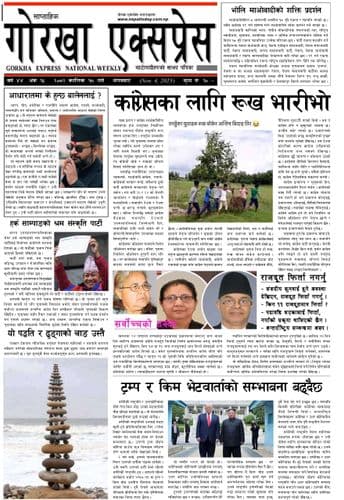
Nepal receives observer status in Shanghai Cooperation Organisation
The Shanghai Cooperation Organisation (SCO) stands as one of the world’s most significant regional organisations, possessing the potential to shape the political, economic, and security dynamics of the Eurasian landmass. Since its inception, it has advanced a vision of a multipolar world, yet its true effectiveness and global significance remain unrealised. To transform the SCO into a more impactful and globally relevant institution requires deep strategic reconsideration, institutional reforms, and shared commitment among member states.
The SCO originated in 1996 as the “Shanghai Five,” aiming to resolve border disputes and build military trust. With Uzbekistan’s inclusion in 2001, it adopted its current organisational form. Today, it comprises nine full members—China, Russia, India, Pakistan, Kazakhstan, Kyrgyzstan, Tajikistan, Uzbekistan, and Iran—representing over 40% of the global population, 20% of global GDP, and vast Eurasian territories. This theoretically grants it unparalleled influence, yet its actual impact falls short of its potential.
The SCO’s primary strength lies in its regional security agenda. Its Regional Anti-Terrorist Structure (RATS) enables intelligence sharing, joint military exercises, and counter-terrorism coordination among members. It has played a crucial role in addressing Islamic extremism, separatism, and drug trafficking in Central Asia. However, mutual distrust among members—particularly Sino-Indian border tensions and India-Pakistan conflicts—has limited its security efficacy and undermined organisational unity, hindering broader political objectives.
Economically, the SCO holds immense promise but has underdelivered. It aims to promote economic integration, trade facilitation, and infrastructure development, exemplified by initiatives like the SCO Trade Facilitation Agreement and the Energy Club. Yet dollar dominance in international trade, commercial imbalances among members, and disconnected transport networks have hampered progress. Most members rely on Western financial systems, constraining the SCO’s ability to build alternative economic architectures.
To amplify its global relevance, the SCO must implement fundamental reforms. First, it needs effective mechanisms to manage internal political differences. Prioritising common-interest areas—economic development, energy security, and regional stability—can foster consensus. Security cooperation should expand to non-traditional challenges like climate change, pandemic control, and cyber security, which demand multilateral solutions.
Deepening economic integration requires reducing trade barriers among members. Investments must increase in shared physical infrastructure, especially transport corridors and energy networks. Developing trade settlement systems in local currencies would reduce dollar dependency. Collaboration in emerging technologies—digital economies and green innovation—should be prioritised to build long-term resilience.
Institutional reforms are critical. Decision-making processes must become more streamlined and transparent. Smaller members’ voices should be amplified to prevent dominance by major powers. A empowered Secretariat with implementation authority and resources would enable coherent external policymaking.
Observer states like Nepal can extend the SCO’s global reach. Nepal’s geostrategic position—bridging South Asia with Central and East Asia—makes it a vital connectivity player. Its expertise in renewable energy (e.g., hydropower) offers partnership opportunities. Elevating Nepal’s status to full membership would let it directly influence policy, particularly in advocating for smaller developing nations’ interests, making the SCO more inclusive.
Another vital step is collaborating with credible international institutions like the UN, WHO, or IMF. Strategic partnerships would boost global credibility and allow advocacy for reforms (e.g., in the UN Security Council), amplifying its role in the evolving world order. Engagement should extend to non-member states, especially in Southeast Asia.
Cultural and academic exchanges are essential for long-term cohesion. Scholarship programs, joint research initiatives, and cultural festivals would deepen mutual understanding—particularly among youth—laying foundations for sustained cooperation.
Finally, the SCO must develop a clear, visionary mandate defining shared values and future goals. This vision should focus on building a more inclusive, equitable, and sustainable global order. The organisation must effectively communicate its achievements to the world.
In conclusion, the SCO possesses all attributes to become an institution of global significance. It spans the world’s largest contiguous region, population, and economic potential. Yet realising this requires institutional overhaul, strengthened internal unity, and strategic clarity. By promoting engagement with states like Nepal, deepening economic integration, and addressing non-traditional security threats, the SCO can emerge as a decisive force—not just shaping Eurasia’s future, but contributing substantially to global peace, stability, and prosperity. This transformation demands no ordinary effort, but with shared will and strategic foresight, it is achievable.
The author is a senior journalist, political analyst, President of Nepal- China Mutual Cooperation Society and expert on international affairs.
@dragonmedia.com.np


